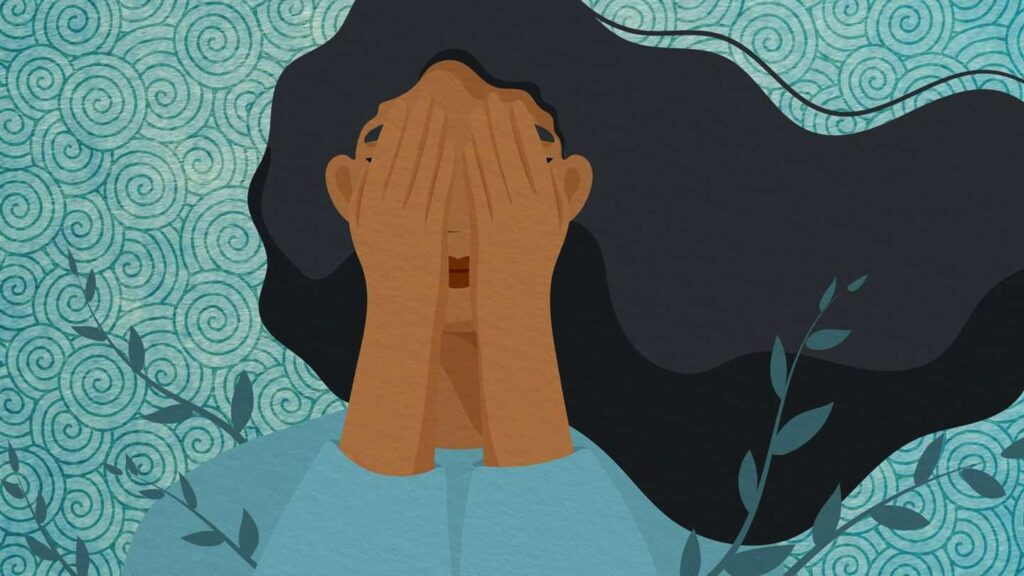Depression is a serious mental illness that can impact your life in many ways. It can make it difficult to get out of bed in the morning, to concentrate on work or school, to eat or sleep properly, and to enjoy activities that you used to find pleasurable. If you are struggling with depression, you are not alone. Millions of people around the world suffer from this condition every day. In this guide, we will discuss some methods for fighting depression and restoring your quality of life.
Contents
- 1 What Is Depression?
- 2 Tips For Fighting With Depression
- 2.1 Understand your condition
- 2.2 Identify your triggers
- 2.3 Get support
- 2.4 Challenge your thoughts
- 2.5 Stay active
- 2.6 Set realistic goals
- 2.7 Appreciate your efforts
- 2.8 Create a routine
- 2.9 Do things that you enjoy
- 2.10 Do mindfulness
- 2.11 Practice meditation
- 2.12 Spend time in nature
- 2.13 Keep a journal
- 2.14 Practice gratitude
- 2.15 Eat healthily
- 2.16 Get enough sleep
- 2.17 Avoid substance abuse
- 2.18 Consider professional treatment
- 3 Conclusion
What Is Depression?
 Depression is more than just feeling sad or going through a rough patch. It’s a serious mental health condition that affects your physical and emotional well-being. It can make it hard to function in your day-to-day life and enjoy the things you used to love.
Depression is more than just feeling sad or going through a rough patch. It’s a serious mental health condition that affects your physical and emotional well-being. It can make it hard to function in your day-to-day life and enjoy the things you used to love.
There are different types of depression, and it can range from mild to severe. Some people only experience it for a short period of time, while others have to deal with it on a long-term basis.
Depression is caused by a combination of genetic, biological, environmental, and psychological factors. It can also be triggered by certain life events, such as the death of a loved one or losing your job. If you’re dealing with depression, it’s important to know that you’re not alone.
You should always remember that depression is a treatable condition. With the right help and support, you can start to feel better. So, do not hesitate to ask for help if you need it. Here, we will discuss some common tips to help fight depression.
Tips For Fighting With Depression
Fighting depression is not an easy task. It can be extremely tough and sometimes feel impossible. But it’s not impossible, you can fight depression. Here are some tips that may help you in your battle against the blues.
Understand your condition
First and the foremost thing is to understand your condition. Depression is not just feeling low or sad, it’s a serious mental disorder that needs to be diagnosed by a professional. If you think you’re depressed, please see a doctor. Moreover, read as much as you can about depression so that you know what you’re dealing with.
Various things can help you understand your condition better. For instance, you can search for online blogs, or read articles and books about depression. You can also talk to your family and friends about it. The more you know, the better equipped you will be to deal with your condition.
Identify your triggers
 Once you know what depression is and how it affects you, try to identify your triggers. What makes you feel depressed? Is it a certain situation, such as being alone or feeling overwhelmed? Or is it a certain type of thinking, such as negative self-talk or rumination? There are many different triggers for depression, and it’s important to figure out what yours are.
Once you know what depression is and how it affects you, try to identify your triggers. What makes you feel depressed? Is it a certain situation, such as being alone or feeling overwhelmed? Or is it a certain type of thinking, such as negative self-talk or rumination? There are many different triggers for depression, and it’s important to figure out what yours are.
Once you know your triggers, you can start to develop a plan for how to deal with them. If you know that being alone makes you feel depressed, for example, you can make an effort to socialize more. With time and effort, you can learn to control your depression triggers and start to feel better.
Get support
Depression can make you feel isolated and alone but it’s important to remember that you’re not alone. Some people care about you and want to help. Talk to your friends and family about how you’re feeling. If you don’t feel like you have anyone to talk to, many support groups and hotlines can help.
Reach out for help when you need it and accept help when it’s offered. It takes a lot of strength to admit that you need help but it’s worth it. Getting help is an important part of fighting depression. When you have somebody to get support from, the fight against depression becomes a lot easier.
Challenge your thoughts
Sometimes, depression can be caused by the way we think about things. If you’re used to thinking negatively, it can be tough to break out of that habit. But it’s important to challenge your negative thoughts and look at things in a more positive light. For example, if you’re thinking “I’m such a failure,” try to counter that thought with something more positive, like “I’m doing my best.”
It can also be helpful to remember that everyone has their own unique set of strengths and weaknesses. Just because you’re not good at something doesn’t make you a bad person. And just because you made a mistake doesn’t mean you’re a failure. Everyone makes mistakes – it’s part of being human.
Stay active
 Staying active is always a good idea, but it is especially important when you’re fighting depression. Exercise releases endorphins, which have mood-boosting properties. Just a 30-minute walk can help improve your mood and increase your energy level. But if you’re depressed, you may not have the motivation to exercise.
Staying active is always a good idea, but it is especially important when you’re fighting depression. Exercise releases endorphins, which have mood-boosting properties. Just a 30-minute walk can help improve your mood and increase your energy level. But if you’re depressed, you may not have the motivation to exercise.
That’s where a friend or family member can come in handy. Having someone to take a walk with can make all the difference. Also, start small and choose some physical activity that you enjoy. That way, you’re more likely to stick with it. Some common activities include:
- Swimming
- Hiking
- Biking
- Tennis
- Running
If you’re not sure where to start, talk to your friends or family. They can help you create a plan that’s right for you. Remember, the key is to be active and to do it regularly.
Set realistic goals
Now, this is something that sounds easy, but can be hard to do. A lot of people who suffer from depression set goals that are unattainable, and then get disappointed when they don’t reach them. This can lead to a downward spiral of negative thoughts and feelings. So, instead, try to set small, achievable goals for yourself.
And don’t beat yourself up if you don’t reach them right away. Just keep trying, and eventually, you will get there. One other thing to keep in mind is that depression can make it hard to concentrate or focus on anything. So, try to break down your goals into small, manageable steps. That way, you won’t feel overwhelmed and will be more likely to stick with it.
Appreciate your efforts
When fighting depression, it is important to appreciate your efforts. Acknowledge how far you have come and give yourself credit for the progress you have made. This will help increase your motivation and encourage you to keep going. There are numerous ways you can do this, such as:
- Gifting you a small present
- Treating yourself to a meal or activity you enjoy
- Learning new activities
- Paying gratitude
- Sharing your successes with others
These are just a few examples, so get creative and find what works best for you. The most important thing is that you take the time to celebrate your victories, no matter how big or small.
Create a routine
 In depression, routine is often the first casualty. As energy and motivation plummet, so does the ability to stick to a schedule. If you’re fighting depression, one of the best things you can do is to create a daily routine and stick to it as much as possible.
In depression, routine is often the first casualty. As energy and motivation plummet, so does the ability to stick to a schedule. If you’re fighting depression, one of the best things you can do is to create a daily routine and stick to it as much as possible.
Start by prioritizing the most important tasks of the day and setting realistic deadlines for completing them. Then break each task down into smaller, more manageable steps. For example, if you need to clean the house, start with just one room. If you need to write a paper, start with just one paragraph.
It’s also important to schedule time for activities that bring you joy and help you relax. Because when you do things that your heart feels good, it will show in your smile, which will make you feel good. Taking care of yourself is an important part of fighting depression.
Do things that you enjoy
This activity is essential while fighting depression, as it allows you to explore within yourself what makes you happy. When you know what activities make you feel good, you can do them more often to help improve your mood and outlook on life. A few examples that might make you feel good are:
- Listening to music
- Reading books
- Going for walks outdoors
- Cooking some delicious foods
- Writing or painting
- Organizing your home
- Hanging out with friends or family members
- Volunteering for a cause you’re passionate about
Whatever it is that you enjoy, make sure to do it often! Who knows it will be your new favorite hobby that helps you forget all about your depression.
Do mindfulness
Mindfulness is known to be an effective way to manage stress and anxiety, but it can also help with depression. A 2013 study found that mindfulness-based cognitive therapy was as effective as antidepressants in preventing relapse for people who had suffered from a major depressive disorder.
Start by practicing mindfulness for a few minutes each day. Once you get the hang of it, you can increase the amount of time you spend on it. There are many ways to be mindful, but one simple way is to focus on your breath and notice when your mind starts to wander. So give it a try and see how it can help you fight depression.
Practice meditation
 Meditation is a mindfulness practice that can help you focus on the present moment and let go of intrusive thoughts. It can also help reduce stress and anxiety, which may be contributing to your depression. You can try meditation on your own or take a class to learn how to do it properly. However, it is easy and free to get started by simply sitting in a comfortable position and focusing on your breath.
Meditation is a mindfulness practice that can help you focus on the present moment and let go of intrusive thoughts. It can also help reduce stress and anxiety, which may be contributing to your depression. You can try meditation on your own or take a class to learn how to do it properly. However, it is easy and free to get started by simply sitting in a comfortable position and focusing on your breath.
Start by setting aside just five minutes a day to meditate. Once you get the hang of it, you can gradually increase the amount of time you spend each day. If you find it difficult to focus or sit still, there are many guided meditation apps. Some common meditations that you can try include:
- Body scan
- Lovingkindness meditation
- Deep breathing exercises
- Visualization
- Muscle tension relaxation
Spend time in nature
It is widely known that time spent in nature can boost your mood and overall sense of well-being. One study found that just 20 minutes in a park can have significant mental health benefits. If you live in an urban area, try to find a nearby park or green space to visit regularly. You can also bring nature into your home by keeping plants or flowers.
For instance, one study found that people who had plants in their offices had lower levels of stress and anxiety. If you don’t have a green thumb, consider getting a low-maintenance plant like a succulent or snake plant. It gives you a sense of responsibility and can help purify the air in your home.
Keep a journal
Since you’re already writing down your thoughts and feelings, why not do it in a more organized way? Get yourself a pretty journal (or use the notes app on your phone) and start jotting down your daily musings. This will help you to make sense of what you’re going through and track your progress.
There are no criteria or rules when it comes to journaling – simply write whatever comes to mind. You could even doodle if that’s more your thing. The important thing is to get your thoughts and feelings out of your head and into a safe space. Still, a very famous study has found that people who wrote about their deepest thoughts and feelings for 15 minutes a day definitely have improved immune function, sleep better, and even visited the doctor less frequently.
Practice gratitude
 Gratitude is one of the most effective ways to combat depression. When you focus on what you’re thankful for, it’s impossible to dwell on negative thoughts. Keep a gratitude journal and write down three things that you’re thankful for each day. You’ll be surprised at how quickly your outlook changes when you make gratitude a daily habit.
Gratitude is one of the most effective ways to combat depression. When you focus on what you’re thankful for, it’s impossible to dwell on negative thoughts. Keep a gratitude journal and write down three things that you’re thankful for each day. You’ll be surprised at how quickly your outlook changes when you make gratitude a daily habit.
You can also try to watch some successful and inspiring people get rid of depression. Because when you see other people fighting and succeeding against all the odds, you feel more hopeful about your own situation. It gives you the strength to keep going when things are tough.
Eat healthily
A diet is always important for our health and well-being, but it becomes even more crucial when we’re struggling with our mental health. Eating a balanced diet helps our bodies to function properly and gives us the energy we need to get through the day. When we’re depressed, it can be difficult to find the motivation to cook or eat healthy meals.
But making small changes, such as adding more fruits and vegetables to our diet, can make a big difference. Other things that you should include in your diet are:
- Whole grains: contain vitamins, minerals, and fiber that can help boost our mood.
- Omega-three fatty acids: found in fish, nuts, and seeds, can improve our brain function.
- Lean protein: helps the body to repair and grow new cells.
Get enough sleep
A good night’s sleep can work wonders for your mood and overall health. Because sleep has a connection with our emotional well-being, it’s important to make sure we’re getting enough shut-eye each night. If you’re struggling with insomnia or other sleep issues, there are several things you can do to improve your sleep hygiene:
- Establish a regular sleep schedule and stick to it as much as possible.
- Avoid caffeine and alcohol before bed.
- Avoid working or using electronic devices in bed.
- Create a relaxing bedtime routine including winding down for 30 minutes before sleep.
Avoid substance abuse
 Sometimes people who are depressed turn to drugs or alcohol to try to self-medicate.
Sometimes people who are depressed turn to drugs or alcohol to try to self-medicate.
Substance abuse only leads to more problems and will make depression worse in the long run. You should understand the negative impacts that substance abuse can have on your mental and physical health before you start using any type of substance.
Therefore, if you really want to fight depression, you should avoid substance abuse at all costs. You can try some things to avoid substance abuse, these include:
- Finding a healthy outlet for your emotions
- Talking to someone you trust about your feelings
- Getting professional help if you feel like you can’t cope with your depression on your own.
Consider professional treatment
Finally, it’s important to realize that you don’t have to go through this alone. If your depression is proving to be too much to handle on your own, consider seeking professional help. A therapist can provide you with the tools and support you need to get through this tough time. Depression can be a difficult battle, but it’s one that you can win.
There are several ways a professional can help you, a few common treatments include:
- Cognitive Behavioral Therapy: This type of therapy helps you to identify and change the negative thought patterns that are contributing to your depression.
- Interpersonal Therapy: This type of therapy focuses on your relationships and how they may be affecting your depression.
- Medication: In some cases, medication may be necessary to help balance your chemicals and improve your mood.
If you think professional treatment may be right for you, talk to your doctor or do some research to find a therapist in your area. Depression is a serious issue, but with the right help, you can overcome it.
Overall, fighting depression is not something that you have to do alone. There are many people and resources available to help you through this difficult time. Though it is a difficult battle, it is one that you can win with the right help.
Conclusion
In conclusion, fighting depression might seem like an impossible task. But it’s not. You can do it with the help of a therapist, medication, and by making lifestyle changes. Don’t give up hope – you can get better. There are many ways to treat depression, and the most important thing is to find what works for you. Take the first step today towards a happier, healthier future.
For more information and guidance on fighting depression, please get in touch with our expert therapists at Therapy Mantra. They will be more than happy to assist you on your journey to recovery. Contact us today to learn more about our services. You can also book an online therapy session or download our free Android or iOS app.


